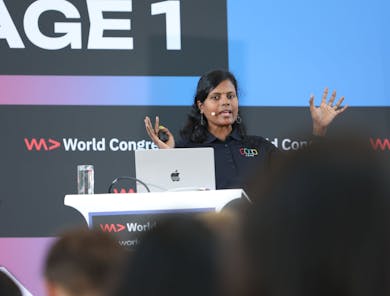Open source developers are saints.
Every day, millions of developers around the world contribute to open source projects—not for money, not for recognition, but to make something better. They improve codebases, enhance user experiences, and solve real-world problems, all because they believe in the power of collaboration and shared knowledge.
For a long time, there’s been a myth that working in open source means working for free. Open source projects were seen as harder to monetise due to the code being easier to copy, licenses were asssumed to be more permissive than ones in non-open source environments, and many feel that the spirit of open source is that your product should be free to use.
However, it’s possible to build a successful career in the world of open source, and we’ll show you how.
Whether you’re a junior dev looking to build your portfolio or a seasoned engineer seeking meaningful collaboration and recognition, contributing to open source can open doors, build your brand, and help you grow both technically and professionally.
But where do you start? How do you stay motivated? And how do you turn contributions into a career? Let’s get into it.
1. Start Small, Start Smart
Stick to what you know is great advice, in lots of areas of life.
The chances are, you use an open source project regularly, either in your development workflow or just in everyday life.
If you use the tool, you probably know what it’s benefits are, but you also probably wish it had a few specific features, or did something slightly differently that it does at present.
Why not start contributing to the project to see if you can make it better? Most well-maintained repos will have a series of good first issues, issues that are labelled specifically for people looking to get started in open source, or who might be relatively new to programming in general.
Fix typos, improve docs, update examples, review code or just add to the discussions. These small wins build your confidence and trust with the community, but are also a huge benefit to the project owner, who will often be focused on the big picture than these tiny details.
2. Be Visible, Be Valuable
Open source isn’t just about code. It’s about communication, collaboration, the community, and consistency. That’s a lot of C’s.
If you really like the product, why not introduce yourself to others in the community around it? Join the project’s Discord, Slack, or forums. Say hi, share your interest, and ask how you can help.
To add to this, consider documenting your journey. Everybody loves a story of self-improvement, of overcoming obstacles or carving out a path. You’d be surprised how many people will want to see you succeed, and will follow along to watch it happen.
3. Build Real Relationships
Careers grow faster with collaboration, and your network will help you every step of the way.
If you’re not a confident networking, just keep things simple and authentic. Engage with maintainers respectfully. Ask questions, take feedback well, and show initiative.
Find mentors and peers. Some of the best mentorships in tech happen informally through open source, so look out for maintainers that are making impressive contributions, people who you could learn from, and over time, call friends (or at the very least acquaintances).
Reach out to one active contributor and thank them for their work, you’ll be surprised how a seemingly insignificant conversation can lead somewhere exciting.
4. Turn Contributions into Career Capital
Open source is your portfolio in public.
Anyone with an interest in you or your work can physically read your code, see what you’ve built, see the consistency of your output andultimately see what you can offer.
Highlight your work on GitHub. Pin your best repositories and contributions so others can see them, and keep on top of this so it stays fresh (you never know who is looking, right?).
Write case studies. Describe what problem you solved, how you approached it, and what you learned, because this will help you in future as well as those watching, as well as making for a great story in an interview (if you ever get asked for one).
5. Stay Consistent, Avoid Burnout
Last, and perhaps mostly importantly, remember that it’s a marathon, NOT a sprint.
Set boundaries. Open source should support your career, not overwhelm it or de-rail it. We recommend playing the long game, looking to contribute a little, and often. This not only makes it easier to balance your open source work with the other aspects of your life, but it also really adds up over time.
Remember to take breaks, don’t get obsessed with your GitHub commit chart, celebrate progress, and contribute when you can and when you want to - not because you feel obligated to.
Set a monthly goal — maybe one PR or two discussions. Keep it realistic and sustainable.
Final Thoughts
Open source can give you skills, visibility, and a global network — if you treat it like the career path it is.
In this article, we didn’t even explore the monetisation opportunities open to you in open source (perhaps we’ll revisit this for a part two), but hopefully you can see that open source can work wonders for your career, so dive in and start today.











